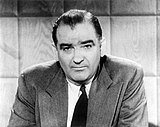The state of TIAH
February 9th, 2007
Digg this
Alternate Historian's Note: This weekend, on Sunday unless we add an extra post somewhere, we will make our 1000th post on TIAH in Blogger. In addition to Stephen's guest post, our regular post will be a reminiscence of where we've been and what we've done. Be sure to join us as we get all sentimental and reflective in celebration of this unique milestone. More long-term, we are working on a new project – a collection in book format of several timelines with more-or-less complete stories inside them – The Fall, the Tolman timeline, the Mormon War, the Lascaux Cave story, and more – that will have our NaNoWriMo novel, After, included with it. Once they're edited together, we'll put the lot up for sale on Lulu. If you would be interested in this, or would like to suggest something for inclusion in the collection, please email me and let me know. And, speaking of side projects, Guest Historian Stephen Payne has one, Crimson Kiss, available for free on Lulu. Check it out and put up a review!
in 1864, General George A. Custer of the Union Army marries his Michigan bride, Elizabeth Bacon. The happy couple settled down in New York, where Elizabeth Custer's social connections provided General Custer with a new livelihood after the war. She convinced him to leave the military once the war in the south was won, and he then entered politics. He spent 6 years in the New York State Legislature until winning his first race for the US House in 1872. He was then tapped to be Ulysses Grant's running mate in the Centennial Election, 1876, which the two generals won handily. Vice-President Custer ran on his own merits in 1884, but was defeated by the Democratic candidate, Grover Cleveland. Custer retired back to New York, where he became governor for one term before leaving politics and entering business with the help of the many friends he had made in Washington. He died in 1932, one year before his wife, Elizabeth, and was feted by New York as a genuine hero and favorite son just as another New York governor, Franklin Roosevelt, was winning the presidency again.
in 2007, Secret Service agents surround the Capitol Building and prevent Congressmen and their staffers from entering; at least, most of them do. A small number of SS agents disobey their official orders and sneak into the White House, where they find a nearly-unconscious President Bush mumbling about “runnin' 'em all down.” They spirit the president out of his residence and to a handful of Congressmen. These Congressmen, led by Senator Russ Feingold of Wisconsin, announce to the Secret Service that they have the president, and will, in the Senator's words, “conduct the people's business no matter how many thugs stand in the way.”
 Tailgunner Joe | In 1950 US Senator Joseph McCarthy gained national stature when he accused the State Department of being filled with Communists. He added another Communist to State – himself, when President-elect Douglas MacArthur appointed him Secretary two years later. Tailgunner Joe's betrayal was necessitated .. |
| .. by the need to raise easy money to settle huge gambling debts. In his own words he 'was in such a hole, he could see China'. | |
~ entry by Steve Payne from counter history in context - you're the judge! | |
| In 1964 the IX Olympic Winter Games in Innsbruck, Austria-Hungary are formally closed by the Kaiser (Emperor) Otto von Hapsburg-Lothringen. |  Emperor Otto vo.. |
~ entry by Steve Payne from Counter History in Context - You're the Judge! | |
 Halley's Comet | In 1986 Comet Halley reached perihelion, its closest approach to the sun, during its second visit to the solar system in the 20th century. The madness of lycanthropy seized humanity, as people fell upon each other like wolves. |
~ entry by Steve Payne from counter history in context - you're the judge! | |
| In 1861 leading Southern general Robert E. Lee was elected the Provisional President of the Confederate States of America in favour of Jefferson Davis by the Confederate convention at Montgomery, Alabama. Historians rank him above his great adversary Abraham Lincoln in military, political .. |  Battle of the W.. |
| .. and diplomatic skills. At the Battle of the Wilderness May 5 to May 7, 1864 he once again took personal charge of the Confederate Army of Northern Virginia defeating Lt. Gen. Ulysses S. Grant and marching onwards to Washington in the closing action of the States War. | |
~ entry by Steve Payne from Counter History in Context - You're the Judge! | |
Cool stuff - Let us know where you are on Frappr! and We've been Dugg
We have links again! Yay, us. Check them out on the side of the page, and if you have some suggestions, send them to us!
Visit the Co-Historian's store -


No comments:
Post a Comment